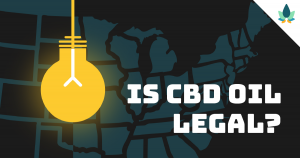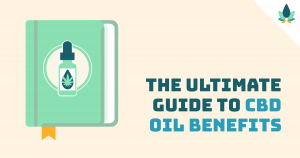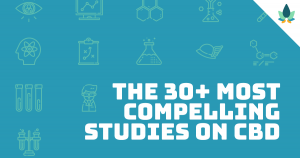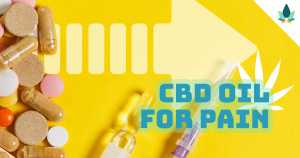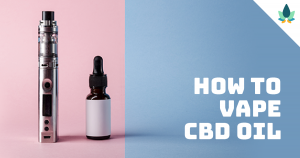In the last year, 7% of adults have suffered a major depressive episode due to imbalances in their brain.
Thankfully, cannabidiol, better known as CBD, is showing to be a natural and useful treatment option for those suffering from depression.
Finding the right prescription medications can be long and arduous with periods of severe depression and anxiety. Even when helpful medication has been identified, there can be many unpleasant, even dangerous side effects associated with it. (1)
As researchers continue to look for a better way to regulate the endocannabinoid system, the natural properties of CBD may provide more immediate relief. Best of all? CBD does not create the side effects those seeking relief have come to expect. (2)
Reduced depression symptoms without side effects? Read on!
CBD and Depression: It All Starts With The Endocannabinoid System.
The endocannabinoid system is one of the most underrated systems in the human body. It helps regulate the brain, organs, tissues, and immune cells and are all working towards the same goal: maintaining homeostasis and an overall sense of balance.
Because depression is generally caused by a chemical imbalance within the body, CBD – which interacts with the endocannabinoid system – offers an obvious alternative for relief.
There are two cannabinoid receptors that are present throughout the body: CB1, found in the nervous system, connective tissues, organs; and CB2, found in the immune system. Cannabinoids – like CBD – interact with the endocannabinoid system, to promote balance while regulating various systems.
How Can CBD Oil Reduce Depression?
Let’s get to what we all are wondering: how can a natural substance such as CBD ease depression?
As we learned, the endocannabinoid system has two primary receptors: CB1 and CB2 receptors. When CBD is ingested, its phytocannabinoids bind with the CB1 and CB2 receptors in the brain and create balance within the body. Think of CBD’s phytocannabinoids as your favorite vacation spot that helps you relax and reset.
Part of this balance stems from an increase in serotonin production which is known to contribute to feelings of happiness, sleeping, eating, and mood stabilization. Additionally, the brain’s hippocampus, responsible for emotions, memory, and the autonomic nervous system shrinks when an individual is suffering from depression. CBD can also stimulate neurogenesis which helps the brain create new neurons.
The Research: Why CBD Helps Treat Depression Symptoms
While many studies are currently underway to better understand how and why CBD helps treat depression, some completed studies also offer promising results.
For example, a 2011 study examined the way endocannabinoids are distributed throughout the body and the way they regulate many physiological functions. What they found was that endocannabinoids are “important regulators of stress responses and a deficit in [endocannabinoid] signaling contributes to stress-related disorders such as anxiety and depression. (3)
Another study published in 2011, found CBD (with or without THC) to be an effective antidepressant, antipsychotic and analgesic, which works to provide therapeutic side effects so often sought after from traditional treatments. (4)
Similarly, a 2015 study concluded that CBD delivers antidepressant-like effects and “significantly enhanced serotonin and glutamate levels” depending on the duration of the treatment. (5)
The verdict? It seems as though CBD may be just as, or even more, effective than traditional therapies in providing long-term benefits and relief.
One thing that separates CBD from traditional therapies – in addition to its scientifically proven success – is that it causes no risk of withdrawal or serious side effects. While some users report drowsiness or dry mouth, these side effects are nothing compared with those traditional anti-depressants cause.
Depression: Contributing Factors
Depression is the most commonly diagnosed mental health disorder in the world with many instances remaining undiagnosed. However, it is also one of the most treatable mental disorders in the world. 80 to 90 percent of people with depression respond well to treatment – whether that includes medication, therapy, lifestyle changes or something else. (6)
There are a few key factors that can play a key role in depression, all of which contribute to why CBD can help treat its symptoms:

Biochemistry
Imbalances in brain chemicals that can contribute to depression
Genetics
Depression can run in the family
Personality
People with low self esteem or who are easily overwhelmed by stress are more likely to experience depression.
Environmental Factors
Prolonged exposure to poverty, violence, or abuse can make people more vulnerable to depression.As science continues to explore the benefits of CBD, it’s clear that a healthy endocannabinoid system is imperative to good health. It’s also clear that CBD can support the system in maintaining optimal overall health.
The Negative Effects Of Prescription Anti-Depressants: Why CBD Is So Appealing
Since 1999, the number of patients prescribed anti-depressants rose by 65%. More than 1 in 8 Americans over the age of 12 are currently taking these medications. The figures are both eye-opening and staggering.
In many cases, these drugs are absolutely necessary, even life-saving. But, the jury is out on whether, as a whole, anti-depressants are over-prescribed to patients experiencing mild forms of depression, or temporary bouts of depressive episodes, that CBD may be just as effective – if not more effective – at treating.
Regardless of where you fall on this stance, one thing is certain: anti-depressants are often accompanied by major side effects ranging from mild discomforts to life-threatening issues. (7)
These side effects include:
- Physical symptoms like headaches, nausea, rashes, joint pain, muscle aches, and more.
- Life-threatening blood clotting disorders due to decreased serotonin levels in platelets.
- Tics, muscle spasms, and other involuntary movements.
- Decreased sexual desire and/or performance.
- Seratonin syndrome, a scientifically proven condition stemming from how anti-depressants interact with other medications, causing racing heart rates at best, and delirium at worst.
- Increased chance of suicidal thoughts. (8)
Many of these side effects require other medications, which come with their own side effects, a change in anti-depressant medications, or an ongoing cycle of increasing and decreasing dosages. This often means that there’s no “ideal” treatment regimen. Instead, patients are forced to decide which they can live with the best: depression or the effects of treatment.
Additionally, those who begin treatment for depression using traditional medications are subject to intense withdrawal if they chose to go off treatment. This forces many patients to continue treatment when it may not be necessary anymore.
Depression is real, life-altering and serious. However, the use of many traditional prescription drugs can be just as detrimental. Because of the proven benefits of CBD and its lack of side effects, many patients are embracing the opportunity to live normal lives that more well-known drugs often fail to provide.
If you or a loved one is suffering from depression, speaking with a medical professional is absolutely essential. However, CBD may be an ideal alternative for moving forward.




